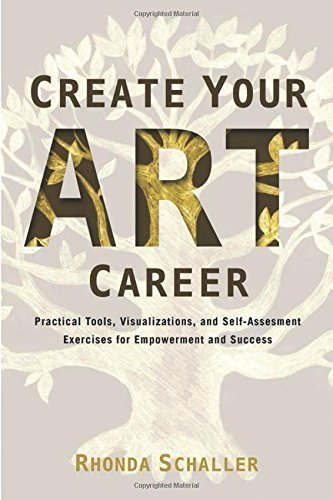
Create Your Art Career: Practical Tools, Visualizations, and Self-Assessment Exercises for Empowerment and Success by Rhonda Schaller (2013-03-01)


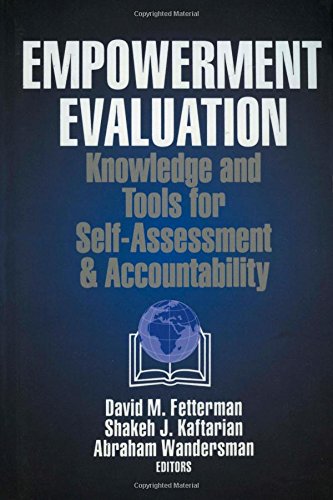
This outstanding group of evaluators from academia, government, nonprofits, and foundations explores empowerment evaluation, a method for using evaluation concepts, techniques, and findings to foster improvement and self-determination.
Empowerment Evaluation begins with an in-depth examination of this type of evaluation as it has been adopted in academic and foundation settings. The book then focuses on the various contexts in which empowerment evaluation is conducted, ranging from resistant environments (in which significant effort is required to move from passive-compliance orientations) to responsive environments (that already have a tradition of self-determination and community organizing). Interesting highlights concerning the role empowerment evaluation has played in the U.S. Department of Health and Human Services’ substance abuse prevention programs are detailed throughout the book. The contributors also provide down-to-earth tools and technical assistance needed to conduct empowerment evaluation. This volume concludes with themes that emerge from the chapters and recommendations concerning next steps. This serves to strengthen the links between empowerment evaluation and community capacity building.
empow
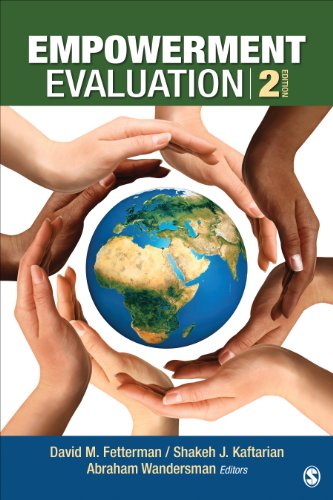
This Second Edition celebrates 21 years of the practice of empowerment evaluation, a term first coined by David Fetterman during his presidential address for the American Evaluation Association. Since that time, this approach has altered the landscape of evaluation and has spread to a wide range of settings in more than 16 countries. In this Second Edition of Empowerment Evaluation: Knowledge and Tools for Self-Assessment, Evaluation Capacity Building, and Accountability, an outstanding group of evaluators from academia, government, nonprofits, and foundations assess how empowerment evaluation has been used in practice since the publication of the landmark 1996 edition. The book includes 10 empowerment evaluation principles, a number of models and tools to help put empowerment evaluation into practice, reflections on the history and future of the approach, and illustrative case studies from a number of different projects in a variety of diverse settings. The Second Edition offers readers the most current insights into the practice of this stakeholder-involvement approach to evaluation.
“One of the greatest evaluation innovations of the past two decades has been the development of a professional and systematic approach to self-evaluation called empowerment evaluation. This book offers you the latest, cutting-edge understanding of this powerful innovation and evaluation approach. May you be inspired and empowered as you adventure through the chapters in this outstanding volume!” —Stewart I. Donaldson, President-elect, American Evaluation Association, Claremont Graduate University
“This twenty year follow-up to the original provides even better and richer stories about the versatility and utility of empowerment work in most social contexts. It expands our understanding of how empowerment evaluation is foundational to any effort to improve and measure growth in any community/social environment.” —Robert Schumer, University of Minnesota
“This text brings empowerment evaluation to life, and in doing so it offers all evaluators a large body of relevant concepts and tools for designing, implementing, and assessing evaluation efforts that engage, democratize, and strengthen stakeholder’s self-determination.” —Gary J. Skolits, The University of Tennessee, Knoxville
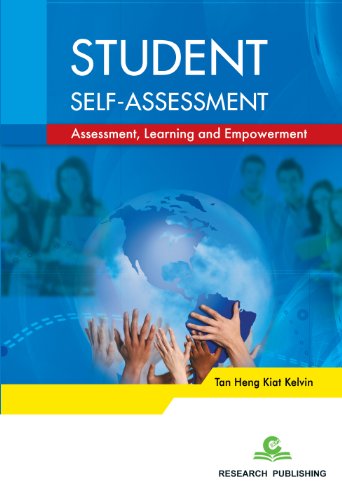
Student self-assessment as a practice and as a goal in higher education is generally emphasised for academics. This book researches specifically what academics emphasise in their experiences of student self-assessment. The investigation focused on the different ways academics described their understanding and practice of self-assessment. These academics ways of experiencing student self-assessment are subsequently discussed in terms of assessment, learning and power.
Whilst there is much emphasis on student self-assessment as a practice and as a goal in higher education, there is less attention paid to how it is understood and used by academics. This book is about student self-assessment from the perspectives of academics in higher education who had provided their students with opportunities to judge their learning. The investigation focused on the different ways that student selfassessment was experienced by sixteen academics from a variety of disciplines and programs of study. The consequent research findings describe a structure of progressive awareness of meanings and practices of student self-assessment.
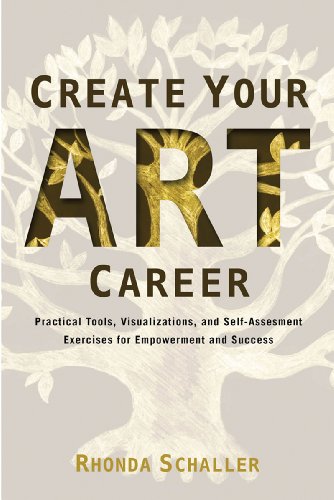
The ultimate self-help book for visual artists who want to create and sustain a successful career.
Have you dreamed of creating a better future for yourself as an artist? Well now you can. Artist, educator, and career coach Rhonda Schaller provides insights and practical tools for readers to cultivate an inspired, sustainable art career. Both the established artist and the emerging creative will learn how to visualize a better future, empower their creativity, and build a career plan for artistic success. This fun-to-read self-help guide will change the way you think and validate the way you feel. Schaller gives artists many ways to solve career problems and plan the next steps, providing more than 50 unique career planning exercises and tools including creative visualization, self-assessment, and mind-map exploration. Based on her popular Creative Mind, Business Mind: Use of Creative Visualization in Career Planning course at the School of Visual Arts, chapters include Your Personal Vision, What Would You Do If You Couldn’t Fail, Visualizing Great Business Relationships, Artist as Entrepreneur: Attracting Funding, and Take Charge of Your Life. Required reading for every working artist who wants to have a creative career, this book will facilitate brainstorming and self-understanding for every career stage, and show artists how to apply their values and desires to become more successful.